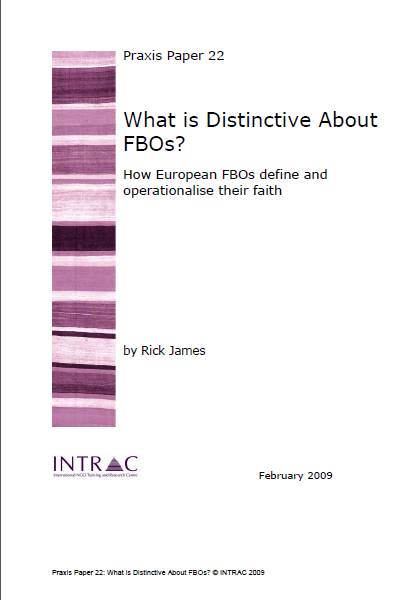
How European FBOs define and operationalise their faith
‘Faith matters’ in development. Faith-based organisations (FBOs) have historically been in the forefront of service delivery and social movements in development, but have been disregarded by donors for decades. Religion has largely been viewed as anti-developmental.
To survive in such a secular climate, many Faith-based organisations in Europe have downplayed their faith identity.
But as the aid climate changes from ‘estrangement’ to ‘engagement’ with faith (Clarke and Jennings 2008), so FBOs are reassessing what their faith identity means to them and how it influences their work.
The Dutch government recently surprised some church-related agencies they fund by asking them: “What is the added-value of your faith to your work?” Other donors, like DFID and Sida, are funding programmes and convening conferences to better understand the relationship between religion and development.
Post- 9/11 the World Bank has set up a Directorate on Faith. Yet many Christian FBOs in Europe are reticent about their faith identity.
They fear opening a ‘can of worms’.
They have good reasons to avoid the topic, as we shall see in Section 3. Many have reached a tolerable compromise between their faith and their work. This enables them to distance themselves from the worst excesses of their faith, access secular funding, keep a diverse staff team together, and support partners in a variety of faith contexts.
Office
External programmes http://www.intrac.org/
Citation
James, R (2009), What is Distinctive About FBOs?,INTRAC (International NGO Training and Research Centre), [Online] Available at: http://www.intrac.org/data/files/resources/482/Praxis-Paper-22-What-is-Distinctive-About-FBOs.pdf





